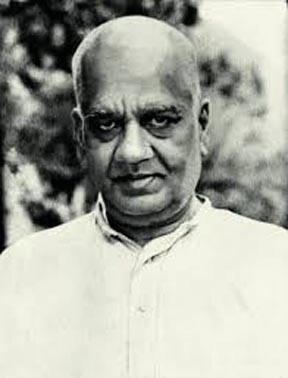
A householder should not conduct himself like a vanaprastha or sannyasin; nor should a vanaprastha or sannyasin behave like a householder”. This is one of the important injunctions of the scriptures. A householder should perform all the duties pertaining to his station in life; it is not for him to live like a sannyasin (nor is it desirable to do so).
A householder, wise and dispassionate, discharges his duties not out of any desire to enjoy sense objects, but out of conviction that it is his duty to do so. He accommodates sense objects so far as they serve him to fulfill his duties; not for selfish enjoyment.
To all outward appearances there may be no differences between him and a purely worldly man. Both perform their duties, but really in their attitudes there is an ocean of difference.
Sri Yajnavalkya and Vasishta were householders. Full as they were of jnana and vairagya, they continued to perform householder’s duties without relaxation. Confronted with agitation Yajnavalkya used to say, “To how many persons I have taught Brahma Vidya, how many of them have I converted to jnanis! How many of my disciples are immersed in bliss deep in brahma samadhi as sannyasins, avadhutas, stark-naked vairagis! Yet, my prarabdham is to be subjected to agitation as a householder!”
Were there ever greater jnanis like Vasishta who was the author of Yoga Vasishta or Yajnavalkya, seer of Sukla Yajur Veda? Oceans of wisdom and vairagya as they were, Vasishta lived with Arundhati performing the duties of a householder; Yajnavalkya lived with Maithreyi and Katyayani. To them it was all a Lila or sport.
Without vairagya there can be no Brahma-jnana. Great jnanis were also great vairagis. But dispassion and renunciation are entirely different. A householder may have firm dispassion; he may have no desire at all for sense enjoyment; yet, he will have to accept sense objects as a householder.
A sannyasin may succeed in doing his duty (uninterrupted contemplation of Brahman) without touching a coin, but a householder cannot do so. Vairagya means having no raga (desire) within; rejecting things externally also out of dispassion is called renunciation. A householder may lead the life of a great vairagi and great jnani; but he cannot become a great tyagi as he cannot renounce all objects because he has yet to attend to his duties as a householder. Yet he may live with self control and happiness.
What I mean to impress through these examples is this: A householder ought to perform his household duties as duty, as service to God. For him it is indispensable to receive sense objects and deal variously with them. That agitation should result at times from this is inevitable.
By nature agitation is sorrow and sorrow is the result of prarabdha. Yet, for them who recognize agitation and sorrow as a form of Brahman it will be possible to find happiness even in the midst of suffering. On a sultry day a man stands hip deep in cold water. From head to the hips he experiences heat; below the hips he feels cold – in the same way.
Excerpted from ‘Guidance from the Guru’, Letter 6, written to Mr and Mrs. Chandrasekhara Menon.
Swami Tapovan Maharaj






